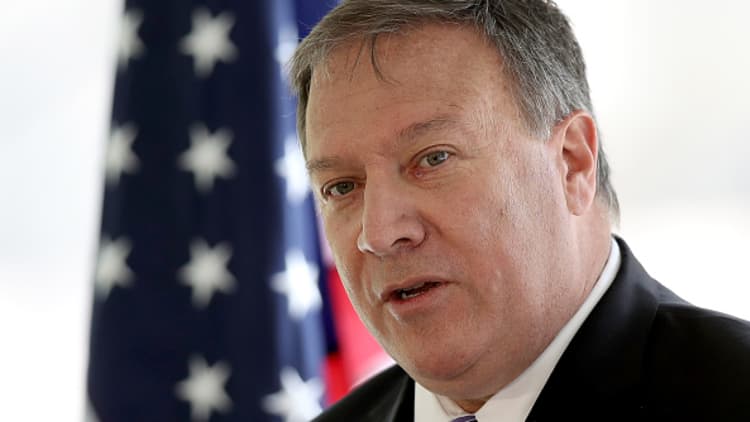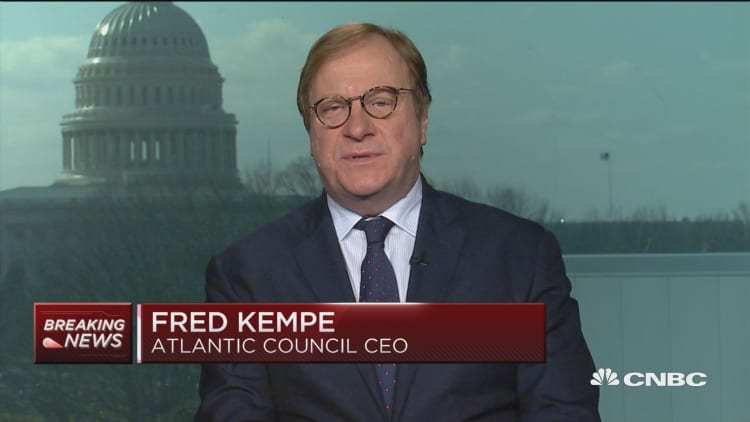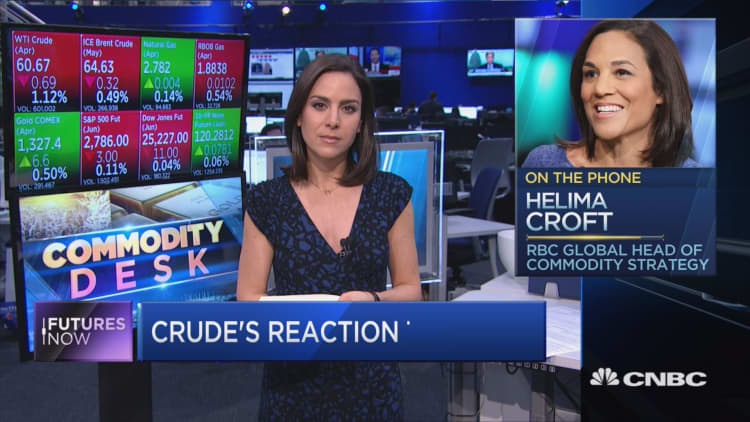
President Donald Trump injected fresh uncertainty into oil markets on Tuesday by removing Rex Tillerson from his post as secretary of State and replacing him with CIA Director Mike Pompeo, a foreign policy hawk.
The staff shakeup installs an ardent critic of the Iran nuclear deal as the nation's top diplomat and narrows the difference of opinion between the White House and the State Department, analysts say. Tillerson's firing also removes another member of the administration's internationalist wing and emboldens Trump to take more punitive measures against rivals, including Iran and Venezuela, they warn.
That could raise the geopolitical risk premium in oil markets and ultimately disrupt crude output, potentially sending prices higher as supply tapers off at a time of robust oil demand.
"We are probably looking at both the U.S. exiting the Iran deal and the U.S. imposing more sanctions on Venezuela, and both of those are pretty bullish for oil," said Helima Croft, global head of commodity strategy at RBC Capital Markets.
The Iran nuclear deal has been in peril since Trump disavowed the accord in October. Under the agreement, Iran accepted limits on its nuclear program and agreed to international inspections. In exchange, the United States and international partners suspended sanctions, allowing Iran to restore its lost oil production.
Trump waived U.S. sanctions in January but said he would not do so again unless his administration reached a deal with European allies to toughen the terms of the deal and address Iran's ballistic missile tests. He set a deadline for May.
"The likelihood of those being renewed is probably now more uncertain," said Arun Pillai-Essex, a senior political risk analyst at Verisk Maplecroft.
That does not mean the deal is doomed, Pillai-Essex said, but he noted that Trump and Pompeo have similar views on the deal. Tillerson was among a group of deputies who counseled the president against scrapping the accord.
Thus far, European signatories to the deal — including Germany, France and the UK — have not signaled a strong willingness to make major concessions, Pillai-Essex said.

By choosing Pompeo as Tillerson's successor, Trump is increasing pressure on Europe to agree to changes to the deal, said Mark Dubowitz, CEO of Foundation for Defense of Democracies and a longtime critic of the accord.
"The appointment of Mike Pompeo is a message to the Europeans that they better fix the fatally flawed Iran deal by May 12, or the president will take America out of the deal and reimpose the most powerful economic sanctions on their companies and banks, who are enriching the Iranian regime," he said.
An American exit from the Iran nuclear deal is unlikely to immediately upend oil markets, said Croft. It would take time for renewed sanctions to squeeze Iranian oil supplies, although the market could begin pricing risk into crude prices.
There was little evidence of that premium on Tuesday, as oil prices were sharply lower, dragged down by concerns about surging U.S. crude production.
The administration could have a more immediate impact on the oil market if it decides to ratchet up sanctions in Venezuela, where economic crisis and mismanagement have caused sharp declines in the petrostate's crude output, said Croft.

Trump has already taken measures to prevent Venezuelan President Nicolas Maduro from restructuring debt held by the government and state-owned oil giant Petroleos de Venezuela, S.A., or PDVSA.
RBC Capital Markets expects a drop of 700,000 to 800,000 barrels a day this year absent new sanctions, but Croft says the country could lose more than a million barrels a day if the United States introduces additional penalties.
"I'm surprised market participants are not realizing the implications of 'Rexit,'" Croft said, referring to the nickname given to Tillerson's exit from the administration.
"Getting someone like Pompeo in that seat means the U.S. may be far more willing to impose sanctions," she said.


